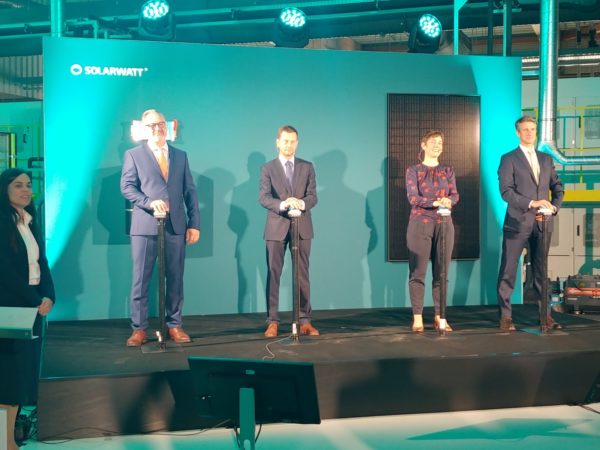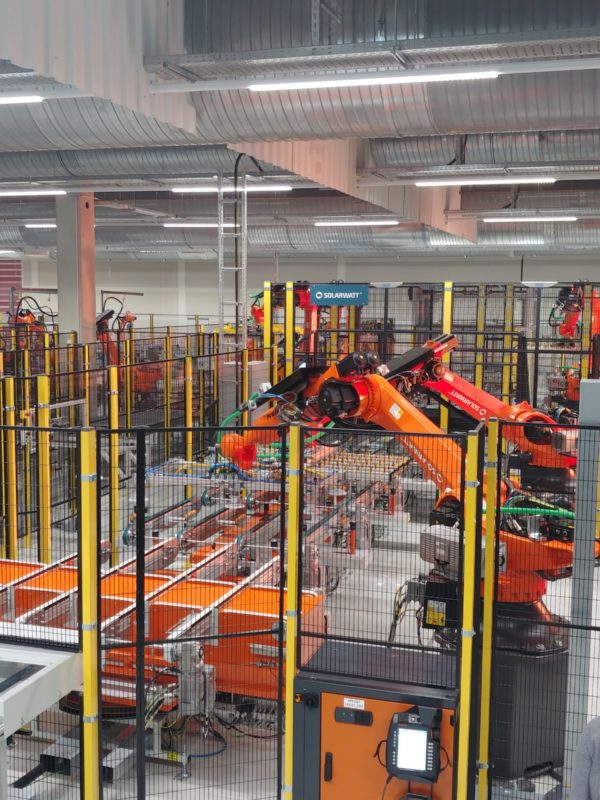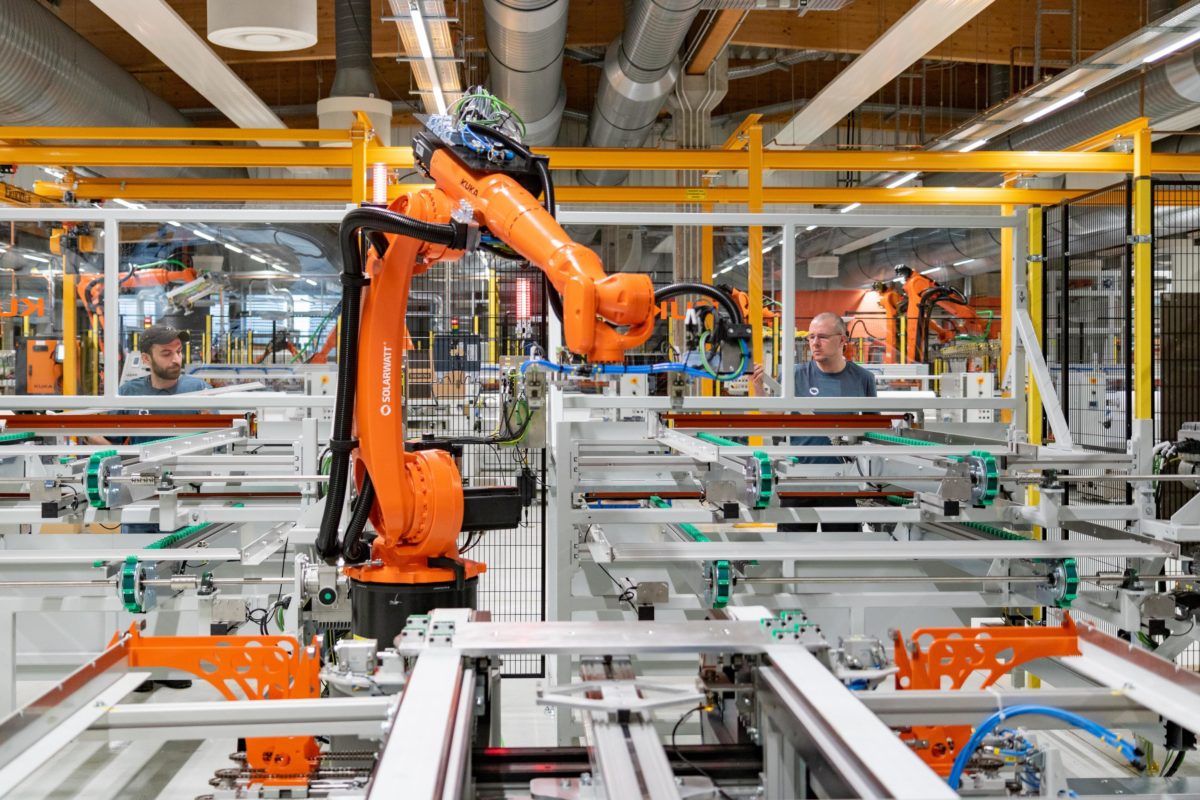German solar module and battery manufacturer Solarwatt today inaugurated 300 MW of new module production lines, bringing its total PV module production capacity to 550 MW. The company is also bringing new battery pack assembly lines online, at its headquarters in Dresden, Germany.
The company says it invested around €35 million in the new PV and storage capacity, as part of a plan to invest €100 million in further development of the company over the next few years. The module lines will produce glass-glass modules based on half-cut M6 (166mm) cells, and the new storage lines will assemble nickel-manganese-cobalt modules into battery packs for the residential storage market. Cells for the battery pack are obtained from BMW, consisting of the same technology used in the automakers electric vehicles. The cells are assembled into modules by German company Webasto, as part of a cooperation with Solarwatt.
The new production capacity was officially announced at an event earlier today. Solarwatt CEO Detlef Neuhaus introduced the new factory, and was joined on stage by Michael Kretschmer, Prime Minister of the State of Saxony, and Walburga Hemetsberger, CEO of SolarPower Europe – both of whom spoke of the need for new renewable energy manufacturing capacity to keep up with rising demand, and for both Germany and Europe to maintain leadership in development of the technology and not to rely solely on other regions to power its energy transition.
“Demand from customers for photovoltaic solutions for private homes and the commercial sector is increasing – not only in Germany but all over the world,” said Neuhaus. “That’s why it is important that we also have a strong solar industry in this country that drives innovation and offers solutions that enable people to supply themselves with clean energy as quickly and easily as possible.”

Image: pv magazine/Mark Hutchins
The new production capacity will be powered by 100% renewable energy, including from a rooftop PV installation. The end products – both modules and batteries – will be destined primarily for residential systems in Europe, though Solarwatt also has a presence in the Australian market. By offering both PV modules and residential battery packs to end customers, the company hopes to drive electrification and decarbonization. “The potential for CO2 savings through sector coupling is huge,” added Neuhaus. “A homeowner who operates an electric car and a heat pump with a PV system and energy storage reduces his own CO2 emissions by up to 90%. Extrapolate that to about 16 million homes in Germany, that’s about 160 million tons that could be saved annually in this area alone.”
The new module line is fully automated up to the junction-box attachment stage, and will produce glass-glass modules sold under a 30 year, 87% performance warranty. Solarwatt is currently working with roundwire, multi busbar interconnection, and 166mm M6 cells in a half cell format, and says that the new lines could process the larger M10 cells without major changes. Solarwatt CTO Armin Froitzheim told pv magazine that he sees any cell format larger than this as likely too big for the rooftop segment.

Image: pv magazine/Mark Hutchins
Including the €35 million invested in the new production capacity announced today, Solarwatt says its plans to invest €100 million in further development. Froitzheim also spoke of plans for a new pilot line, and research & development to investigate optimized module assembly processes and materials for new cell technologies, including perovskite-silicon tandem cells.
This content is protected by copyright and may not be reused. If you want to cooperate with us and would like to reuse some of our content, please contact: editors@pv-magazine.com.




5 comments
By submitting this form you agree to pv magazine using your data for the purposes of publishing your comment.
Your personal data will only be disclosed or otherwise transmitted to third parties for the purposes of spam filtering or if this is necessary for technical maintenance of the website. Any other transfer to third parties will not take place unless this is justified on the basis of applicable data protection regulations or if pv magazine is legally obliged to do so.
You may revoke this consent at any time with effect for the future, in which case your personal data will be deleted immediately. Otherwise, your data will be deleted if pv magazine has processed your request or the purpose of data storage is fulfilled.
Further information on data privacy can be found in our Data Protection Policy.